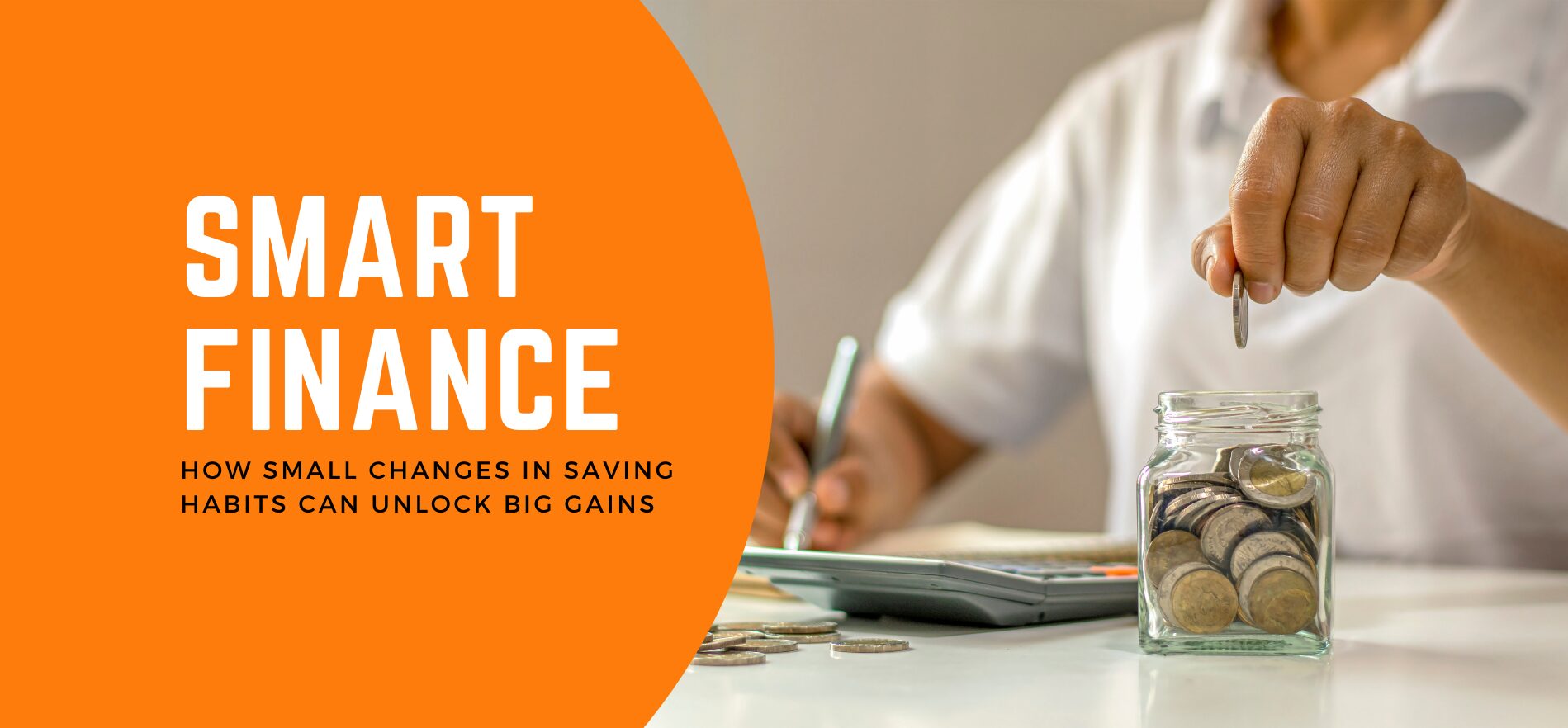In today’s fast-paced world, managing personal finances can feel overwhelming. With bills, unexpected expenses, and long-term goals, it can be difficult to know where to start. However, the key to financial success doesn’t always lie in making huge, drastic changes. Often, it’s the small, consistent adjustments that can have the most significant impact over time. This article will explore how making minor tweaks to your saving habits can lead to major financial gains.
The Power of Small Changes
When it comes to building wealth, many people believe that they need to make large, risky investments or earn a substantial salary to see significant progress. In reality, small, deliberate changes to your spending and saving habits can yield impressive results over time. By focusing on the little things—whether it’s setting aside a bit more money each month or making smarter purchasing decisions—you can unlock big gains.
The Compound Effect: A Simple Yet Powerful Concept
One of the most significant factors in building wealth is the compound effect. The compound effect refers to the idea that small, consistent actions lead to exponential results. When applied to savings, even modest amounts of money can grow substantially over time if invested wisely. This is particularly true for long-term savings, where the interest earned on your savings continues to grow year after year, making your money work for you.
Consider the simple act of increasing your monthly savings by just $50. While $50 might not seem like much on its own, over the course of a year, it adds up to $600. When invested in an account that earns interest, such as a high-yield savings account, your $600 will continue to grow, often at a rate higher than inflation. By making this small adjustment to your finances, you’re setting yourself up for future success.
Building a Solid Foundation: The Importance of Savings Accounts
Before diving into more advanced strategies, it’s crucial to start with a basic, yet powerful tool: the savings account. Savings accounts are a cornerstone of smart finance. They offer a secure place to park your money, where it can earn interest over time. Even though savings accounts typically offer lower returns compared to investments like stocks, the safety and stability they provide make them a critical component of any financial strategy.
Having a savings account allows you to build an emergency fund, which is essential for handling unexpected expenses. Whether it’s a medical emergency, car repair, or job loss, having a cushion of savings can provide peace of mind and prevent you from relying on credit cards or loans. In addition, savings accounts can help you save for specific goals, such as a vacation, home improvement, or a new car, without the temptation to spend impulsively.
A key tool in managing your savings is understanding how interest accumulates over time. You can use a savings account interest calculator to estimate how much your savings will grow based on different interest rates and deposit amounts. This tool helps you see the potential impact of small, regular deposits on your long-term wealth accumulation. While the interest rates on savings accounts may vary, the habit of saving regularly remains the same and is a vital part of any successful financial plan.
The Importance of Automating Your Savings
One of the easiest ways to make saving money a consistent habit is by automating the process. Many banks and financial institutions offer automatic transfers, where you can set up regular deposits from your checking account to your savings account. By automating your savings, you remove the temptation to spend the money elsewhere. It becomes a routine—just like paying your bills or setting aside time for exercise.
Automated savings can also help you avoid the common mistake of “saving what’s left over” at the end of the month. Often, this leads to little or no savings at all. By prioritizing savings through automation, you ensure that you’re putting money aside first before allocating funds to other expenses. Over time, this strategy leads to significant growth in your savings, with little effort on your part.
Additionally, automating your savings helps build discipline and consistency, which are essential for long-term financial success. With this strategy, even small contributions can add up over time, and you won’t have to worry about remembering to transfer money manually every month.
Reducing Unnecessary Expenses
Another way to make a big impact on your savings is by cutting out unnecessary expenses. It’s easy to overlook small, recurring costs, but they can add up quickly. Subscriptions you don’t use, takeout coffee, or impulse purchases all contribute to your monthly spending, leaving less room for saving.
Start by tracking your spending habits. There are numerous apps and tools available that can help you identify where your money is going. Once you have a clear picture of your spending patterns, look for areas where you can cut back. Perhaps you can cancel subscriptions that you no longer need, limit dining out, or find less expensive alternatives for your daily purchases.
The key is to make mindful decisions about where your money goes. Small adjustments—like brewing your own coffee, packing lunch, or opting for a more affordable phone plan—may not feel like significant sacrifices, but over time, they can add up to hundreds or even thousands of dollars in extra savings. These savings can then be directed into your emergency fund or invested for future goals.
Paying Down Debt
While saving money is essential, paying down high-interest debt is equally important. Debt, particularly credit card debt, can quickly eat into your savings due to the high-interest rates charged. The longer you carry debt, the more money you end up paying in interest, which can stifle your ability to save effectively.
To combat this, prioritize paying off high-interest debts first. Once those are cleared, you can redirect the money you were putting toward debt payments into your savings. This process, known as the “debt snowball” or “debt avalanche” method, helps you reduce your liabilities and increase your financial freedom.
As you pay down your debt, you’ll free up more funds to invest in your future. The combination of eliminating debt and saving consistently creates a solid foundation for long-term financial growth.
Long-Term Investing: Making Your Money Work for You
Once you’ve established healthy saving habits, it’s time to consider long-term investing. While savings accounts are essential for short-term goals and emergencies, investing in the stock market, bonds, or real estate can help you build wealth over time.
Investing allows your money to grow at a faster rate than traditional savings accounts. However, it’s important to understand the risks associated with investing and to diversify your portfolio to minimize potential losses. Many financial advisors recommend starting with low-cost index funds or mutual funds, which provide exposure to a wide range of assets, reducing individual investment risk.
Before you begin investing, make sure you’ve built up a solid savings foundation. This includes having an emergency fund and paying off high-interest debt. Once these priorities are handled, you can focus on growing your wealth through investments.
Conclusion: Small Steps, Big Results
Building wealth and achieving financial stability doesn’t require making huge, dramatic changes to your life. Instead, it’s the small, consistent steps that add up over time. By focusing on habits such as automating your savings, cutting unnecessary expenses, and paying off debt, you can steadily increase your financial security.
Remember, the key to smart finance is making incremental improvements to your habits. Whether it’s putting away a little extra each month, utilizing tools, or making small adjustments to your spending, each change you make can lead to significant long-term gains. Start small, stay consistent, and watch your financial health improve.



































